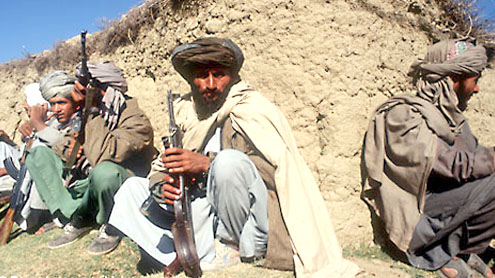 PAKISTAN has paid high price in the war on terrorism (WoT). The nation as a whole has suffered severely, sacrificing precious lives, property and suffering from psychological traumas. Pakistan is still in the eyes of the storm as suicide bombs, drone attacks and kidnapping by terrorists continues inflicting deadly losses both against human life and property. Unfortunately Pakistan’s efforts and sacrifices have not been fully recognized by Western media, think tanks and other stake holders like USA / EU, instead anti Pakistan propaganda has been aired to tarnish the image of Pakistan, its armed forces and intelligence agencies. In Mao’s words, wind blows against Pakistan from all sides. To extinguish the flames of public anxiety and political hotchpotch, there is need to light the ray of hope in the dark tunnels at ordeal moments of history. We in the mainstream media, need to give a new message to the nation by incorporating Professor Anatol Lieven’s assessment of Pakistan as a viable and coherent state in his new book “Pakistan: A Hard Country”.
PAKISTAN has paid high price in the war on terrorism (WoT). The nation as a whole has suffered severely, sacrificing precious lives, property and suffering from psychological traumas. Pakistan is still in the eyes of the storm as suicide bombs, drone attacks and kidnapping by terrorists continues inflicting deadly losses both against human life and property. Unfortunately Pakistan’s efforts and sacrifices have not been fully recognized by Western media, think tanks and other stake holders like USA / EU, instead anti Pakistan propaganda has been aired to tarnish the image of Pakistan, its armed forces and intelligence agencies. In Mao’s words, wind blows against Pakistan from all sides. To extinguish the flames of public anxiety and political hotchpotch, there is need to light the ray of hope in the dark tunnels at ordeal moments of history. We in the mainstream media, need to give a new message to the nation by incorporating Professor Anatol Lieven’s assessment of Pakistan as a viable and coherent state in his new book “Pakistan: A Hard Country”.
According to The Telegraph, the crisis in North Africa and the Middle East has driven Pakistan out of the headlines, but this is apparently only a temporary lull. Equipped by nuclear weapons, threatened by the al-Qaeda, victim of several raging insurgencies and strife torn because of a chronically unstable political structure – most Western experts continue to view Pakistan as the most dangerous country in the world. So this book by Anatol Lieven could hardly be timelier. Lucid and well informed, he deals carefully with all Pakistan’s well-known problems. And one of the joys of this nicely written volume is that it avoids the hysteria and partial judgment that disfigure much contemporary writing on the subject. Above all, it emanates a deep affection bordering on love for unfortunate, beleaguered, magical Pakistan. Lieven’s research takes him to an army cantonment in Quetta, boar-hunting in the Punjab and to a stay in Taliban-dominated Mohmand Agency on the North West Frontier. Lieven, a former foreign correspondent who is now professor of terrorism studies at King’s College, London, talks to just about everybody who counts: farmers, intelligence officers, judges, clerics, politicians, doctors, soldiers, jihadis. In the course of this journey he demolishes the neo-conservative narrative that Pakistan is dominated by a mortal struggle between virtuous modernity and rage-filled Islamist conservatism. He insists that Pakistan is not – as Western intelligence agencies, journalists and think tanks believe – a country on the brink. We needn’t worry too much about its nuclear weapons falling into the wrong hands. Pakistan is not about to be taken over by Islamists.
General nervousness and anxiety in the face of the ongoing war against terrorism and extremism is a natural phenomenon, however, providing a hope of succour to the nation is the responsibility of political leadership and media. They must win over the hearts and minds of people to fight the terrorists/extremists.Pakistan Army needs a breathing space to consolidate its gains from the successful operations in Swat/South Waziristan as political infightings and natural calamities have already made the situation bad to worse in North Waziristan. To convince the global community, there is need to paint a pragmatic picture about the ground realities which Pakistan is embroiled in, urging the US and Western allies to reconcile with the facts why Pakistan is not yet willing to carry out operation in North Waziristan. We also need to call upon the coalition partners to address the economic issues of FATA area by raising free economic zones in tribal areas as promised by US. The terror unleashed in the region makes it imperative for the US and NATO members to give back to the society their war efforts have ravaged. This only possible through long term development plans and capacity building to keep the locals engaged in progressive projects so that they keep out of harm’s way. – Dailymailnews












